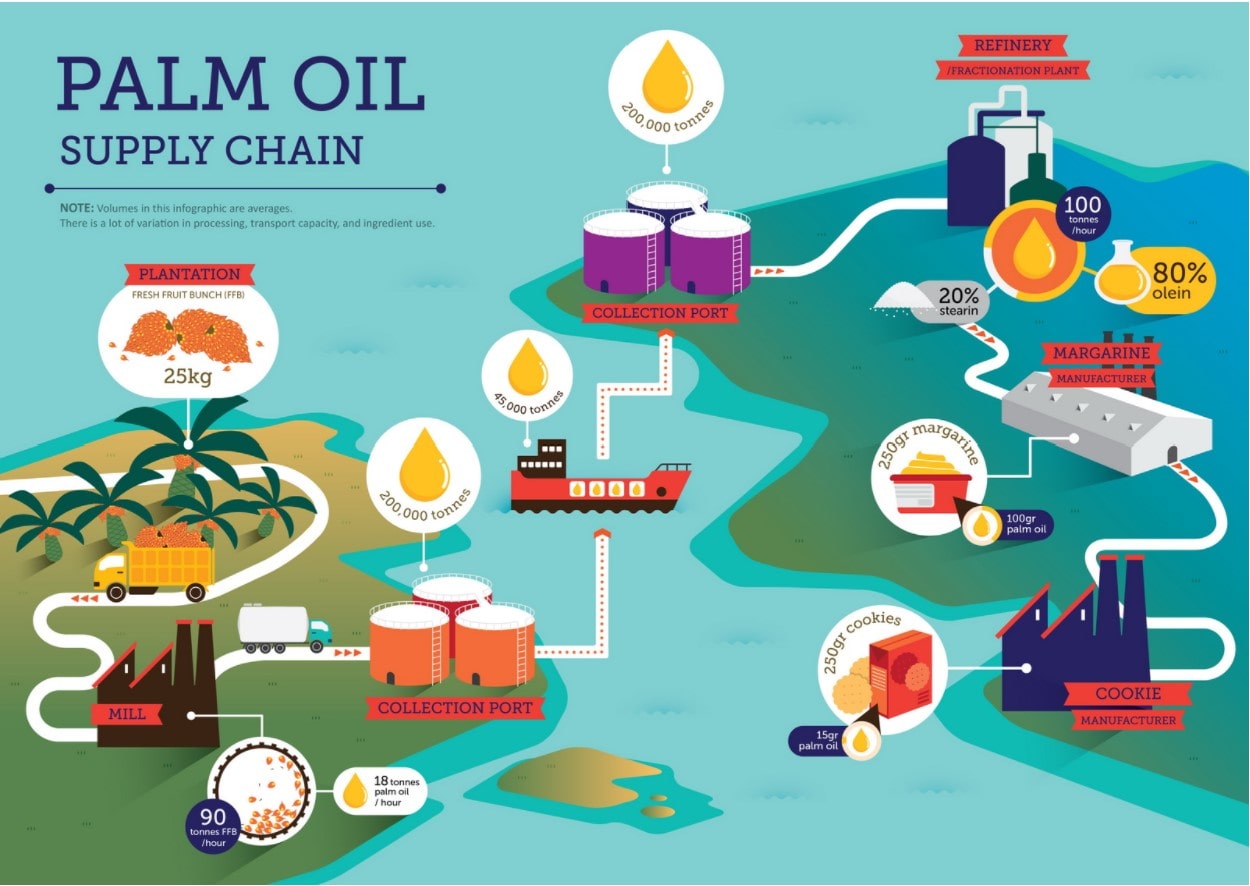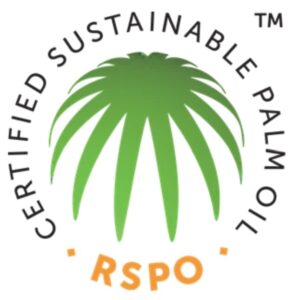
Palm Oil – What is it and why is it important?
Palm oil is an edible vegetable oil that is extracted from the fruit of oil palm trees around the world, including South America, Asia, Indonesia, and Africa. It is in close to 50% of the packaged products we have, from chocolate to shampoo to biofuel. (WWF) It is extremely versatile and has many useful properties. Palm oil is good at keeping spreads spreadable since it is semi-solid at room temperature, it is stable at high temperatures which helps fried products, and it’s odorless and colorless so it doesn’t affect the look or smell of food products. Palm oil can provide a steady income for farmers since it produces high quantities over small areas.
 The issue with palm oil isn’t the product itself, it is how the palm oil is acquired. This small vegetable oil has proven to be a major driver of deforestation around the world. Deforestation destroys the habitats of endangered species and takes away a carbon sink. A carbon sink is a place that holds CO2, the large forests drive photosynthesis and take in that needed CO2. Destroying a carbon sink leads to more CO2 being released into the atmosphere, which is continuing to affect the recent climate change. (WWF)
The issue with palm oil isn’t the product itself, it is how the palm oil is acquired. This small vegetable oil has proven to be a major driver of deforestation around the world. Deforestation destroys the habitats of endangered species and takes away a carbon sink. A carbon sink is a place that holds CO2, the large forests drive photosynthesis and take in that needed CO2. Destroying a carbon sink leads to more CO2 being released into the atmosphere, which is continuing to affect the recent climate change. (WWF)
There is a solution. Palm oil is an essential oil in our lives, whether we like it or not, and boycotting palm oil is not enough to get big businesses to change their ways. Instead, show big business where you want your dollar vote going, to the Roundtable on Sustainable Palm Oil (RSPO) certified products. RSPO began in 2004 with a mission to increase the sustainability of harvesting palm oil. This certification is through a third-party verification through standards set by ISEAL. (ISEAL) Growers of sustainable palm oil must be assessed for certification every five years and be consistent with transparency and credibility. RSPO-certified growers account for 19% of global palm oil production in 2014. (RSPO)
Moving to a focus on creating sustainable palm oil practices will show businesses that the dollar vote that consumers hold matters. The best way to look to see if a product is using sustainable RSPO-certified palm oil (CSPO) is to do your own research, look for the logo or look the company up online. They must be both a member of RSPO and be certified, being a member does not mean that they are using sustainable palm oil. You can search for members on their website and read their yearly report: https://rspo.org/members/search-for-members.
Now, I know what you’re thinking, you’re thinking about how this affects you right now, in October. Trick or treaters don’t know what you’re handing them and when you want to snack on some candies during a spooky movie, you have options on where that dollar vote goes. Hershey chocolates, M&M’s, Dove chocolates, candy corns, Jolly Ranchers, and Dum Dums give options for no palm oil or sustainably sourced palm oils, according to productswithoutpalmoil.com. (Products Without Palm Oil). Being sustainable with the use of palm oils doesn’t mean that a company is completely committed to sustainability, go to company websites and look into what they release about their own sustainability. Remember that when it comes to palm oils and sustainability it’s not about cutting off cold turkey, you’ll just fall back to old habits. To improve your own sustainability efforts, focus on the small things that you can control, like where your dollar vote is going.
References:
- WWF. “8 Things to Know about Palm Oil.” Accessed October 6, 2021. https://www.wwf.org.uk/updates/8-things-know-about-palm-oil.
- Products Without Palm Oil. “Halloween Candy Without Palm Oil | Palm Oil Free Candy,” October 4, 2018. https://productswithoutpalmoil.com/palm-oil-free-candy/.
- “Homepage.” Accessed October 6, 2021. https://rspo.org/.
- “ISEAL Supports Ambitious Sustainability Systems and Their Partners to Deliver Real, Lasting, Positive Change. | ISEAL Alliance.” Accessed October 6, 2021. https://www.isealalliance.org/.
